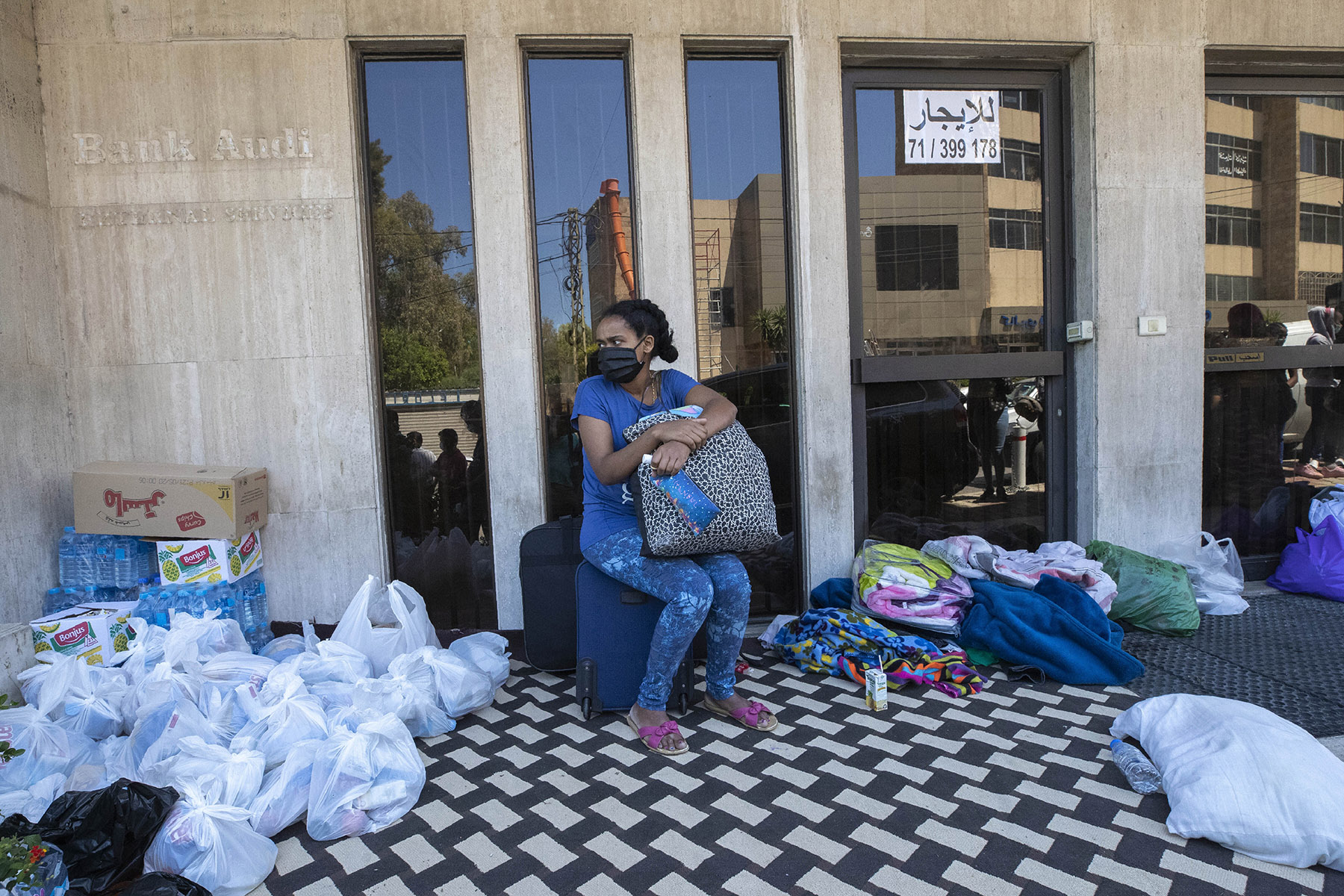In June 2020, Fuller Project reporter Louise Donovan started speaking to domestic workers in Saudi Arabia on WhatsApp who had been fired due to their employers’ fears of the coronavirus pandemic – and were then being held against their will by the very employment companies that had brought them there. A source connected her to a number of these workers: Apisaki, from Kenya, was locked in a single room with eight women. One was pregnant. One was chained to the wall. Some had been there since March with little food or sunlight. The resulting story, published in partnership with The New York Times, chronicles the horror of domestic workers across the Middle East being held in increasingly dire and dangerous conditions.
Apisaki sent Donovan graphic pictures and videos via WhatsApp of the living conditions inside the locked room. One woman was naked and chained to the wall by her arm. She was both physically and mentally unwell. As Apisaki was the only woman in the room who could speak fluent English and was able to access the internet via data (paid for by her partner), she risked her life by talking to a journalist. It wouldn’t have been difficult for the recruitment agency to figure out who had the tools to communicate with an outsider.
Another reporting challenge was whether to name Apisaki or the recruitment agency in Saudi Arabia for maximum impact. She and the eight other women were not only in immediate danger, but also in an unpredictable situation beyond their control. We didn’t want the story to make their situation worse, or put the women’s lives in further danger – especially as they were still under being held against their will by the recruitment agency at the time of publishing.
We carefully considered the best – and most cautious – way to report this piece, weighing the most impactful storytelling while ensuring the women were safe.
Ultimately, we decided to print the name of the recruitment agency in Saudi Arabia but refer to Apisaki by her middle name. Without directly outing the owner of the agency, the recruitment agent could deny or simply ignore the allegations, and the women would remain locked inside the room.
The final decision involved delicately balancing our ethical obligation to the women who bravely spoke up and told her their story, particularly Apisaki, and the story’s potential for real-world impact. This included keeping Apisaki up-to-date and informed during the reporting process to ensure she wasn’t surprised in any way.
The impact was evident before the story was even published. While we were still reporting, we contacted the recruitment agency in Saudi Arabia for comment, and the nine women were immediately moved by the agency owner from the locked single room into larger accommodation, given proper beds and three meals a day.
After the story was published, Saudi government officials raided the recruitment agency and moved the women to a safehouse. Several women were taken to the hospital for medical check-ups, including the woman who was six months pregnant. The Kenyan embassy in Riyadh contacted the women and ensured they were given back their passports and given the required COVID-19 tests to fly home.
Several members of the public reached out to help the pregnant Kenyan woman, Kelleh, who was stranded in Dubai. One facilitated her COVID-19 test and visa issues, while a second covered the cost of her flight. In July, Kelleh landed back in Nairobi. She has since given birth to her baby. After an initial delay, Apisaki also flew home to Nairobi in September.
The story was published on the front page of the international edition of The New York Times. It was shared widely on Twitter by journalists and experts in the Middle East and discussed on the BBC’s ‘The Papers’ segment.
Several of the women in the story told Donovan that this reporting – and its subsequent impact – saved their lives.



